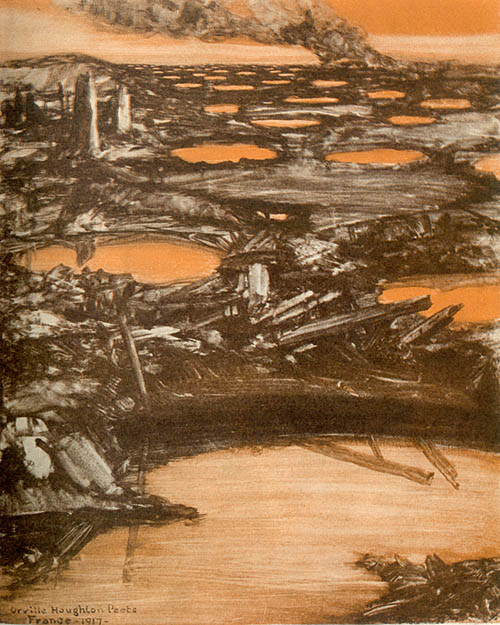Quiet on the Western Front
Today, it's quiet on the Western Front. The University of Houston's College of Engineering presents this series about the machines that make our civilization run, and the people whose ingenuity created them.
When I read New York Times obituaries, I know it'll be a good day if the people who've left us are older than me. This time, a one Alfred Anderson died at the age of 109. He was the last living veteran who'd been present at the 1914 Christmas Truce.
Soon after the Guns of August sounded the beginning of WW-I, six hundred mile line of trenches reached from the North Sea all the way to the Swiss frontier. That Christmas, soldiers -- already weary of a war that'd barely begun -- decided to quit killing each other for a few hours. They rose out of the trenches, met in no man's land, exchanged trinkets, sang carols, and in one place even played soccer for an hour. (When officers arrived to stop the game, the score was Germans 3, Scots 2.)
There were in fact many Christmas truces along the trenches that year. Anderson's ended in the late afternoon, while others continued for days. Eventually, officers, fearing that their men would lose the will to fight, stopped them.
And I think back to my own basic training. One exercise was to attack straw dummies with fixed bayonets, shouting "Kill" as loudly as possible. The Army had caught on to the fact that few WW-II soldiers, with an enemy in their sights, had actually pulled the trigger. They wanted to better prepare soldiers to commit that un-natural act. Now it becomes clearer that, when soldiers do, they often suffer long-term psychological damage.
Certainly that was true for Anderson. Ninety years after that Christmas, he'd lived long enough to help one of his children celebrate a golden wedding anniversary. What this highly decorated war hero remembered and talked about was a moment when the guns fell silent. Asked about the rest of it, he'd gaze off and shake his head. He'd say, "I saw so much horror -- I lost so many friends."
He told how, when he was home on leave, he visited the family of a dead comrade and got a cold reception. When they didn't ask him in, he asked "Why"? They told him, "Because you're here and he's not." Ninety years later, any part of the war, beyond that Christmas when the guns fell silent, brought tears to his eyes.
About the truce he said,
I remember the silence, the eerie sound of silence ... We all went out ... and just stood listening ... All I'd heard for two months ... was the hissing, cracking and whining of bullets, ... machinegun fire and distant German voices. But there was a dead silence that morning, right across the land as far as you could see. We shouted 'Merry Christmas', even though nobody felt merry. The silence ended early in the afternoon and the killing started again. It was a short peace in a terrible war.
Notice his mantra-like repetition of the word silence. Silence can be a wonderful thing. That is why, as you and I approach another Christmas, I just want to wish a joyous silence to us all.
I'm John Lienhard, at the University of Houston, where we're interested in the way inventive minds work.
See the following website about Alfred Anderson and the Christmas Truce:
The Observer Guardian article
The excerpt of a German choir singing "Stille Nacht, heilige Nacht" at the end of the audio track is from Fröliche Weinacht überall, Dresdner Kreuzchor, Capriccio 10 062, 1985.

Shell-Holes, by Orville Houghton Peets (from the 1918 Century Magazine)